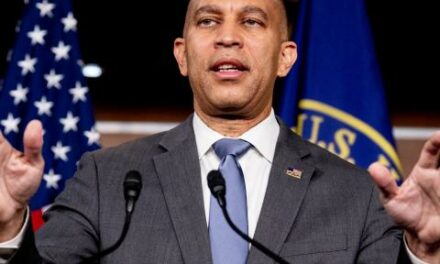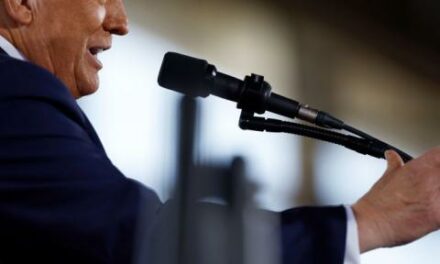We support our Publishers and Content Creators. You can view this story on their website by CLICKING HERE.

Multnomah County, Oregon, which includes the Portland metropolitan area, has added the state’s largest natural gas utility as a defendant to its $51.55 billion climate lawsuit.
The lawsuit originally named as defendants a laundry list of oil companies and industry groups, including ExxonMobil, Shell, Chevron, and the American Petroleum Institute. The amended complaint now adds Northwest Natural Gas Company.
The suit is one of dozens of similar cases across the country, alleging the defendants engaged in a “scheme to deceptively promote fossil fuel products as harmless and rapaciously selling the products.” The Oregon suit seeks damages from a heat dome event in 2021. While the event brought high temperatures for several days, killing 72 in Multnomah County, it didn’t break the state’s record, which was 119 degrees set in 1898, long before large amounts of fossil fuels were being consumed.
Last month, Just the News reported that Gale Norton, former attorney general of Colorado who served as Secretary of the Interior under George W. Bush, warned that these lawsuits, if successful, would be highly lucrative for the firms representing the plaintiffs. This would create an incentive to go after other large emitters, such as heavy industries and utilities.
In a statement celebrating Multnomah County’s move, the Center for Climate Integrity, which receives funding from the anti-fossil fuel Rockefeller funds, said that other utilities will soon become targets of the anti-fossil fuel campaign.
“Gas utilities have been significant players in the historic and ongoing deception campaigns to mislead the public about the dangers of fossil fuels. NW Natural is now the first to be named as a defendant in a climate deception lawsuit brought by a local U.S. government, but it likely won’t be the last,” Alyssa Johl, vice president of legal and general counsel of the Center for Climate Integrity, said in the statement.
Commitments under scrutiny
Should the lawsuits be successful, the cost of the settlements or awards will be passed onto the utilities’ ratepayers, as will the settlement costs oil companies may pay. This impact to consumers has Consumers’ Research, a consumer advocacy nonprofit, concerned. The organization sent letters in September to three major food companies warning them their net-zero targets are leaving them vulnerable to lawsuits.
New York Attorney General Letitia James filed a lawsuit in February against beef giant JBS Foods, alleging deceptive practices over its commitment to achieve net-zero emissions. These goals aren’t unique to JBS. Concerned with how these suits might impact consumers, Consumers’ Research sent letters to the CEOs of Ahold Delhaize, Target, and Tysons Foods, showing how they may suffer similar impact.
The letters suggest that instead of “continuing to mislead consumers with unrealistic goals” and risking litigation, the companies’ leadership should reassess their ESG statements and recommit to providing affordable, high quality products to consumers.
The letters got the attention of the attorney generals of Iowa, Kansas, Nebraska and Tennessee, who sent letters to the same companies, expressing a “growing concern” with companies making misleading statements that may run afoul of the states’ consumer protection laws.
This month, Consumers’ Research sent letters to five banks — Bank of America, Wells Fargo, Citibank, JPMorgan, and US Bank — warning them that their net-zero commitments may be putting them at risk in the same way.
Will Held, executive director of Consumers’ Research, told Just the News that they started to look at financial institutions, which have often jumped on board the ESG bandwagon and put pressure on other companies to fall in line with net-zero commitments. “It’s a white collar industry, but they have made these same ridiculous commitments that will not be fulfilled, cannot be fulfilled, and they are therefore fraudulent,” Hild said.
Undermining goals
New York has some of the most aggressive climate goals of any state, so it would seem at odds with those goals to go after a major beef producer for its climate commitments, since that would serve to encourage other companies to abandon their goals.
JBS is pursuing a listing on the New York Stock Exchange, a move that has raised some concerns. A bipartisan group of senators and representatives, along with environmental groups, have written letters to Securities and Exchange Commission Chairman Gary Gensler asking him to block JBS’ initial public offering due to allegations that the Brazilian company’s officials have engaged in bribery and misconduct.
JBS didn’t respond to requests for comment.
“JBS, the world’s largest meatpacker, perpetuates the problem of vertical integration and political corruption that boxes out small farmers and keeps them from competing with other large-scale food producers. This reality would be exacerbated if JBS is permitted access to our equity market,” Rep. Harriet Hageman, R-Wyo., wrote in her letter to Gensler.
Kelly Barner, co-founder of Art of Procurement, wrote in April the company’s plans to go public and the subsequent controversy surrounding it may be what garnered James’ attention. “Everyone seems to be concerned that JBS will pollute the NYSE, so it seems fair to ask how ‘clean’ the exchange is today,” Barner speculated.
Whatever motivated James to go after JBS, lawsuits over alleged climate deceptions are spreading out to new targets. Michigan Attorney General Dana Nessel is seeking proposals from attorneys and law firms to support climate litigation. According to The Detroit News, Nessel’s office may include utilities and other large emitters.
Anti-fossil fuel activists are proposing Nessel go after auto manufacturers. Robert Bruell, a member of Brown University’s Social Science Network, which produces research in support of climate lawsuits, said in a comment on X under a post about Nessel’s proposed lawsuit, “How about car companies?” Bruell has since deleted his account on X, but the post was reported by Energy in Depth, a publication of the Independent Petroleum Association of America.
The Supreme Court is currently reviewing a challenge to one climate suit filed by Honolulu. Hawaii’s Supreme Court had allowed the lawsuit to go forward in state courts, and the case is now with the U.S. Supreme Court, which has asked the Department of Justice to weigh in. Should the high court allow the lawsuits to proceed in state court, where they have a much better chance of succeeding, it will be consumers — and in the case of publicly traded companies — investors who will ultimately pay.

 Conservative
Conservative  Search
Search Trending
Trending Current News
Current News 





